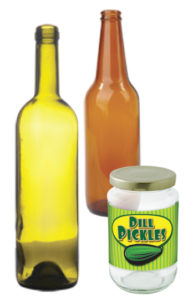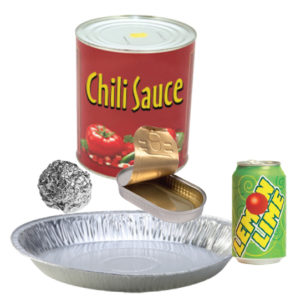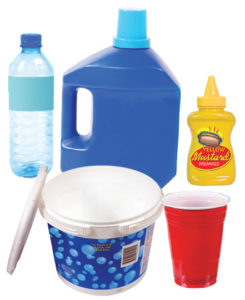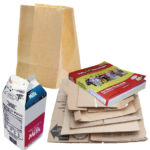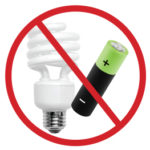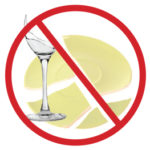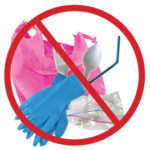What Goes Where?
Find out how to properly dispose of your items by viewing the tabs below or by searching for an item (last tab). You can also view or download the printable sorting guides. If you’re unable to find what you’re looking for, please reach out!
- COMPOST
- RECYCLE
- TRASH
- HAZARDOUS & ELECTRONIC WASTE
- SEARCH
We accept all food scraps, soiled paper, and plants in the green compost cart. Please do not place compostable material in plastic or compostable plastic bags, as the current regional compost facilities are unable to process those materials. Paper bags are acceptable.
Accepted Compost Materials
|
|
Unaccepted Compost Materials
|
Food Scraps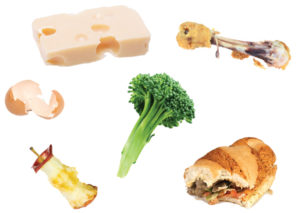
- Bread, grains and pasta
- Coffee grounds with paper filter
- Dairy
- Eggshells and eggs
- Fruit (pits and shells too)
- Leftovers and spoiled food
- Meat (including bones)
- Seafood (including shellfish)
- Tea and tea bags
- Vegetables
Food Soiled Paper
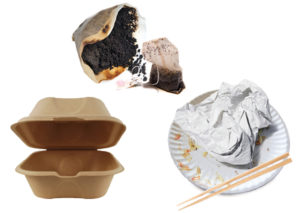
- Coffee filters
- Greasy pizza boxes
- Paper cups and plates (without film plastic liner)
- Paper bags, napkins, tissues and towels
- Paper take-out boxes and containers
(without film plastic liner)
- Tissues
|
Plants
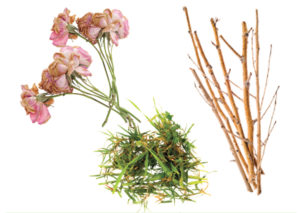
- Branches and brush
- Flowers and floral trimmings
- Grasses and weeds
- Leaves
- Tree trimmings (less than 6 inches in diameter and 4 feet long)
Other
- Hair, fur, and feathers (non-synthetic)
- Shredded paper
- Wood – small pieces of lumber or sawdust from clean wood only (no plywood, press board, painted, stained or treated wood)
- Wooden chop sticks and coffee stir sticks
|
|
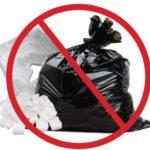 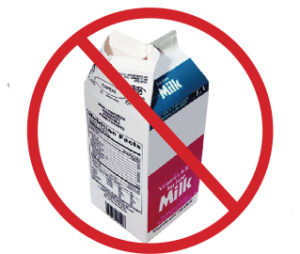
- Aluminum foil or trays
- “Biodegradable” and “Compostable” labeled plastics (bags, utensils, cups)
- Cat litter or animal feces
- Ceramic dishware or glassware
- Clothing, linens and rags
- Cooking oil
- Corks – Natural
- Corks – plastic
- Diapers
- Dirt, rocks or stone
- Flower pots or trays
- Foil-backed or plastic-backed paper
- Glass, metal or plastic not labeled “Compostable”
- Juice or soy milk type boxes with foil liner
- Liquids or ice
- Plastic bags, wrappers or film
- Recyclable/clean cardboard or paper
- Styrofoam
- Waxy paper milk and juice cartons/cardboard
- Wood – plywood, press board, painted or stained wood
- Poison Oak, Yukka tree trimmings, Bamboo, Cactus, Palm fronds
|
Please do not place recyclable materials in plastic bags, as the recycling facility is unable to process those materials. Paper bags are acceptable.
Few things, once they are used, are actually trash. Among such things are non-recyclable plastics and other complex materials that were not designed to be recycled.
| Accepted Landfill Items |
|
Unaccepted Trash Items |
- Cat litter and animal feces
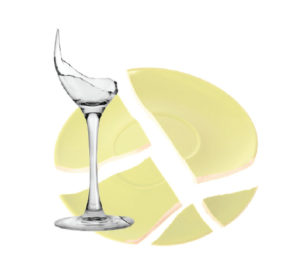 (bagged) (bagged)
- Ceramic dishware or glassware
- Clothing linens and rags
- Cigarette Butts (extinguished – run under water prior to disposal)
- Dental floss
- Diapers
- Feminine Hygiene Products
- Foil-backed or plastic-backed paper
- Glass mirrors and windows
- Incandescent light bulbs
(no fluorescents or HIDs)
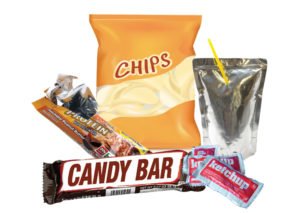 Mylar (shiny metal) bags (potato chips, candy bars, balloons, etc) Mylar (shiny metal) bags (potato chips, candy bars, balloons, etc)
|
- Pens and pencils
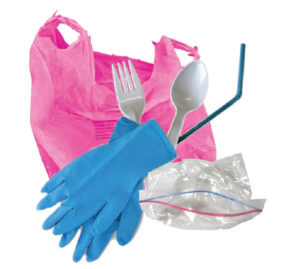
- Plastic bags, wrappers and film (not labeled “Compostable”)
- Plastic items mixed with metal, fabric or rubber
- Plastic labeled “Biodegradable” only
- Rubber bands
- Six-pack ring holder – please cut up
- Sponges
- Styrofoam
- Twist Ties
- Wood – small pieces of plywood, press board, and painted or stained wood
|
|
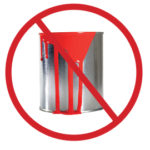 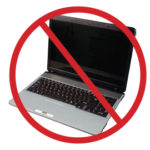 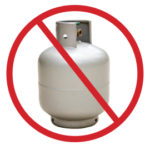
- Appliances
- Asbestos
- Batteries
- Construction debris
- Cooking oil and grease
- Dirt, rocks or stone
- Electronics
- Fluorescent or HID light bulbs
- Household hazardous waste or chemicals
- Large items (furniture, metal, plastic, wood)
- Liquids or ice
- Motor oil
- Needles or syringes
- Paint
- Tires
- Toys with electronics or batteries
- Treated wood
|
 It is illegal to put items such as electronics, batteries, fluorescent bulbs, pesticides, and other chemicals in the trash. When household hazardous wastes end up in a landfill, they can cause serious threats to humans, wildlife and the environment.
It is illegal to put items such as electronics, batteries, fluorescent bulbs, pesticides, and other chemicals in the trash. When household hazardous wastes end up in a landfill, they can cause serious threats to humans, wildlife and the environment.
Recology hosts annual household electronic drop-off events.
For recycling and drop off options visit Marin County’s household hazardous waste website.
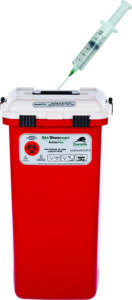
DO NOT dispose of needles, syringes, and lancets in garbage, recycling, or compost bins.
They are extremely dangerous for sanitation workers and need to be disposed of properly.
Many companies in West Marin offer FREE drop-off programs. Click here for more information and open the “Household Sharps and Pharmaceutical Waste” panel.
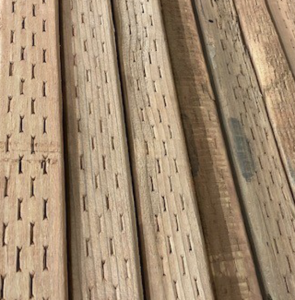
- Treated Wood Waste Now Accepted: Starting August 31, 2022, treated wood (any wood that has been treated with a chemical preservative to protect the wood against attacks from insects, microorganisms, or fungi) is accepted for disposal and considered hazardous waste per California State law. It must be disposed of properly. Find a disposal site near you.
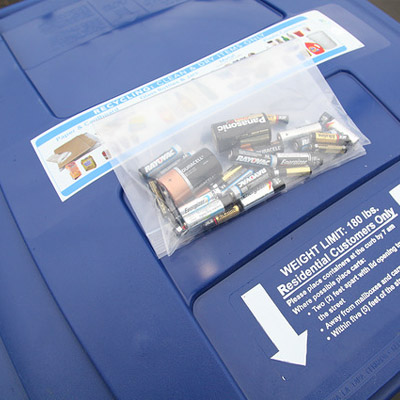 Batteries: Recology offers curbside pickup of household batteries for those in Marin County (except Novato). Please place batteries in a sealed plastic bag on top of your recycling cart on your service day. Your recycling driver will collect them separately from your recyclable materials. Cell phone and laptop batteries are NOT allowed.
Batteries: Recology offers curbside pickup of household batteries for those in Marin County (except Novato). Please place batteries in a sealed plastic bag on top of your recycling cart on your service day. Your recycling driver will collect them separately from your recyclable materials. Cell phone and laptop batteries are NOT allowed.




 It is illegal to put items such as electronics, batteries, fluorescent bulbs, pesticides, and other chemicals in the trash. When household hazardous wastes end up in a landfill, they can cause serious threats to humans, wildlife and the environment.
It is illegal to put items such as electronics, batteries, fluorescent bulbs, pesticides, and other chemicals in the trash. When household hazardous wastes end up in a landfill, they can cause serious threats to humans, wildlife and the environment.
 Batteries: Recology offers curbside pickup of household batteries for those in Marin County (except Novato). Please place batteries in a sealed plastic bag on top of your recycling cart on your service day. Your recycling driver will collect them separately from your recyclable materials. Cell phone and laptop batteries are NOT allowed.
Batteries: Recology offers curbside pickup of household batteries for those in Marin County (except Novato). Please place batteries in a sealed plastic bag on top of your recycling cart on your service day. Your recycling driver will collect them separately from your recyclable materials. Cell phone and laptop batteries are NOT allowed.
